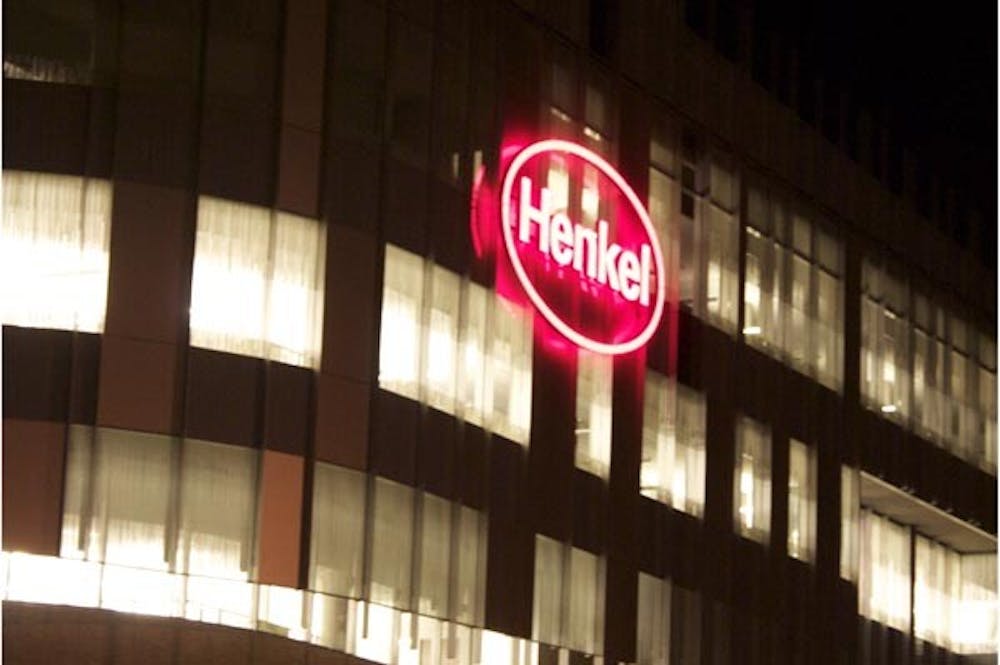A Phoenix economics club with strong ASU ties kicked off its yearly speaker series Thursday with a former executive of a global corporation.
The Economic Club of Phoenix, a networking group designed to connect members of the business community in the Valley, hosted Brad Casper at the Westin Kierland Resort in Scottsdale Thursday afternoon.
He is the first speaker in a series of forums designed to highlight various issues currently affecting the field of economics.
Casper is the former CEO of Dial/Henkel, a global manufacturer of personal hygiene products — such as Right Guard deodorant and Renuzit air freshener — based in Germany. Casper also has a seat on the board of trustees for ASU’s Global Institute of Sustainability.
He had not spoken publicly since leaving the company in August to pursue other interests and business opportunities.
In his address to the club, Casper spoke about the challenges and benefits that stemmed from his time as an executive with a global corporation, and how that can present unexpected difficulties. Casper said he did business in 41 different countries, including Japan and Germany.
He said one of the most difficult things he had to understand was how small cultural differences — perhaps as minor as Europeans hanging their clothes instead of using commercial dryers — can have major effects on the marketing potential of a product.
Casper added that though there are difficulties in managing a company that competes in the global market, globalization should be an important aspect of business.
“Globalize what you can,” Casper said. “Localize what you must.”
Casper advised students to understand their culture before stepping into the global market, saying that while it’s important to understand important cultures and languages in the global market, it will still be difficult for a student to succeed if they cannot clearly and professionally state their ideas.
“English is still the language of business,” Casper said. “Make sure you master our language first.”
The speaker series will also feature Thomas K. Linton, vice president of LG Electronics, a New Jersey company that manufactures products including televisions and cell phones; and Elinor Ostrom, an ASU professor who won the 2009 Nobel Prize for Economics.
The Economic Club of Phoenix is a unique networking club, said event organizer Erin Varga, because similar organizations do not normally network so closely with one particular university. She said the group works directly with the W. P. Carey School of Business to share intellectual resources.
“We’re the only [economics] club, I think, that is connected to a university,” said Varga, who also works as the director of sustainability gifts at the business school.
Varga said the forums are designed to allow members of the club and students to hear unique ideas from leaders in the field of economics, and to create unique networking connections.
The events will also feature local economic updates from members of the W. P. Carey School of Business.
At Thursday’s forum, W. P. Carey School of Business dean Robert Mittelstaedt addressed the crowd on the current state of the economy in both the U.S. and Arizona.
Mittelstaedt said that while there are positive signs to get excited about, there is still a long way to go before the economy gets to the point that economists hope it will.
Though some businesses are doing well, he said there’s still a problem in bringing about long-term employment.
Mittelstaedt added that he expects the recovery to take some time, saying the recovery period following each recession since World War II has taken longer and longer.
“We’re going to keep dragging along for some time,” Mittelstaedt said.
Reach the reporter at Michael.reppenhagen@asu.edu





